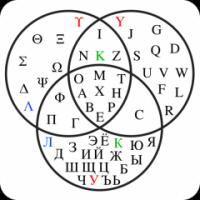讯息: 17
语言: English
darkweasel (显示个人资料) 2011年2月20日上午9:03:15
matrix:... and you can merge estas finenda to finendas just as with any other esti+adjective construction. Nothing wrong with Miland's sentence.
Miland:Mia(j) hejmtasko(j) finendas ĉi-tage.“-end” is used to compose participles, so it must be used in passive voice.
It could be:
[LISTO]
in passive voice “Mia hejmtaskaro estas finenda antaŭ morgaŭ.”
in active voice “Hejmtaskaron mi devas fini antaŭ morgaŭ.”[/list]
matrix (显示个人资料) 2011年2月20日上午9:46:18
darkweasel:... and you can merge estas finenda to finendas just as with any other esti+adjective construction. Nothing wrong with Miland's sentence.It is correct, but to be avoided except in very specific cases. This is used in arts and literature to produce certain effects: it is not intended for everyday life.
Miland (显示个人资料) 2011年2月20日上午11:46:23
matrix: This is used in arts and literature to produce certain effects: it is not intended for everyday life.This is a matter of opinion and may vary from case to case. The flexibiity of Esperanto need not be too constrained among experienced speakers, provided the message gets across.
erinja (显示个人资料) 2011年2月20日下午1:00:00
Miland (显示个人资料) 2011年2月20日下午4:19:00
erinja:And Fraqtive is an experienced speaker, therefore we should encourage him to speak in the weirdest possible way that is still technically correct, just to prove a point?I don't agree that it is weird. It is instructive and good for people to learn of the flexibility of Esperanto to express things in different ways, even if they don't use all of them.
etala (显示个人资料) 2011年2月20日下午4:24:25
Chainy (显示个人资料) 2011年2月20日下午4:59:18
etala:How would one say "grades", as in " A+, A, A-, B+..."?grade = noto. According to ReVo:
Noto = Oficiale uzata signo por indiki takson de scioj aŭ konduto de lernanto: ĉiuj, kiuj havis la noton „tre bone“ aŭ „bonege“, ricevis lokon; ricevi bonan noton pri matematiko.

